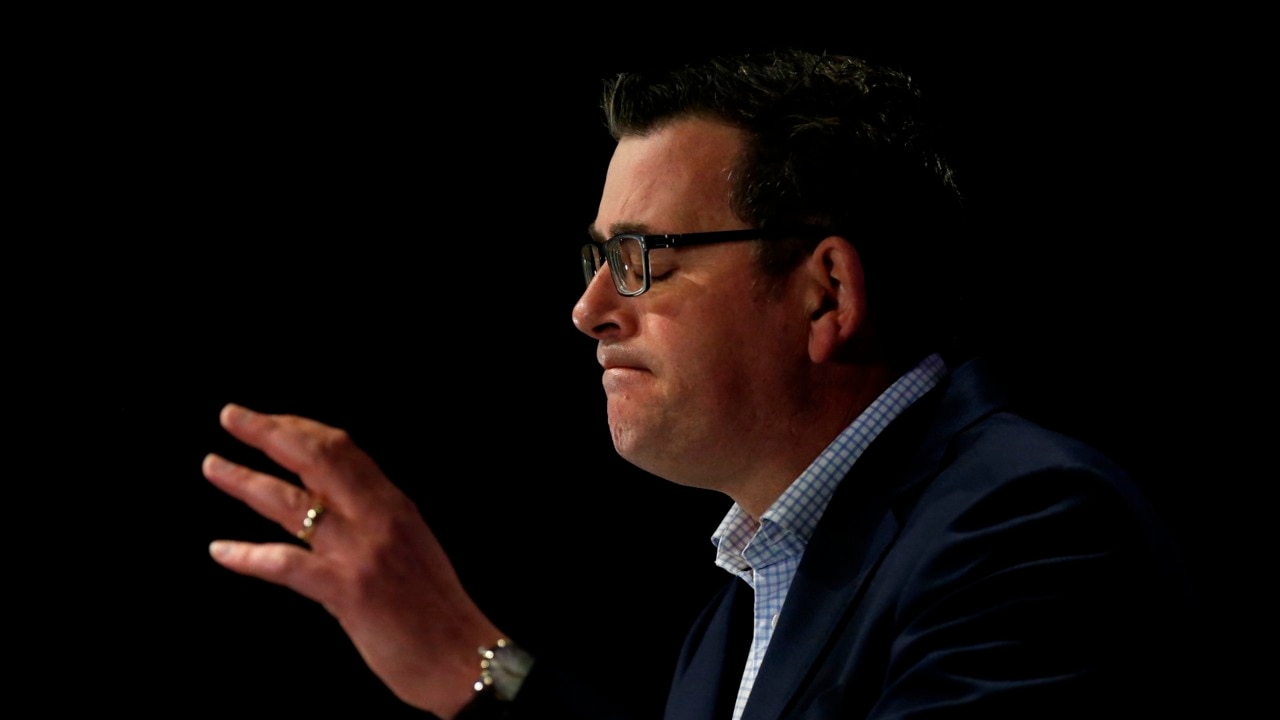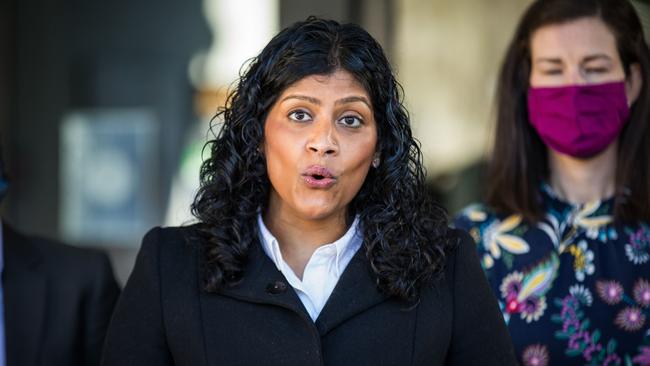Shannon Deery: Why pandemic laws are more than a matter of trust
If bad laws exist, it will only ever take a bad government to use them. And that’s why the proposed pandemic Bill is so concerning.

Opinion
Don't miss out on the headlines from Opinion. Followed categories will be added to My News.
Three weeks after the state government’s controversial pandemic management laws were first made public, they could be just days away from passing parliament.
There’s been a lot of bluster about just how dangerous the Public Health and Wellbeing Amendment (Pandemic Management) Bill 2021 might be.
It’s true that, as it stands, it will allow the imposition of indefinite lockdowns even if there were no cases of virus in the country.
It will allow the detention of people without trial and without an independent review process.
And it will allow the arrest of people on the basis of their religion, political beliefs, or ethnic background.
Crazy stuff.
Of course there’s much to like about this proposed legislative framework for future pandemics.
There is greater transparency of why orders are being made, tougher requirements to release public health advice, and a shift of power away from the public service to the government of
the day.

While the chief health officer’s advice will remain central to decision-making, forcing elected officials to be answerable to their constituents and responsible for lockdown measures and other restrictions of liberty seems to make sense.
But why the rush to push these laws through parliament? Where’s the scrutiny? And where’s the proper public debate?
The Bill has passed the lower house and, subject to upper house debate this week, will pass the parliament if the government can secure the support of the Greens’ Samantha Ratnam, the Animal Justice Party’s Andy Meddick and Reason Party leader Fiona Patten.
Unlike the rest of the crossbench, the chosen three have been in consultation with the government since March on the laws.
They’ve flagged supporting the legislation, with some amendments.
Whatever might those be? They’ve each until now remained tight-lipped on changes they’ll try to push through.
As has the state opposition until Sunday, which was expected to sign off on any planned amendments to the Bill on Monday.
Challenging the legislation will be a big test for the upper house, and particularly the three crossbenchers who between them wield such enormous power.

There have been repeated warnings about the state of the Bill as it stands.
The Law Institute of Victoria has warned the Bill “does not sufficiently protect the rights of Victorians” and lacks proper parliamentary oversight.
The state’s peak legal body, the LIV has been almost unwavering in its support of pandemic measures to date.
But it says this is a step too far.
Victorian Bar president Christopher Blanden QC has slammed the speed at which the Bill is being rushed through parliament as an attack on democracy.
In another submission, the Victorian Bar, representing the state’s barristers, has urged the government to delay introducing the Bill into the upper house.
“It authorises extreme limitations of basic liberties of all Victorians and confers enormous powers on the executive,” it warns.
“It is among the most important pieces of legislation to come before the Victorian parliament in decades.
“The Victorian Bar urges the government to delay the introduction of the Bill into the upper house, so as to seriously consider the issues that have been raised, and make amendments to the Bill.”
It’s not just legal eagles lining up to oppose the proposed laws.


The Victorian Equal Opportunity and Human Rights Commission has also flagged concerns.
Many of those concerns mirror similar ones already raised.
Understandably, the commission is also acutely concerned about the Bill’s clause that allows for pandemic orders to be made specific to classes of people as defined by reference to the attributes detailed in the Equal Opportunity Act.
In other words, by age, employment activity, gender, disability, industrial activity, marital status, physical features, race, sexual orientation. The list goes on.
As rightfully pointed out by the Victorian Bar, there may be legitimate public health reasons to discriminate based on certain attributes, such as age, gender or disability, as they may be relevant to a person’s health risk profile.
But for what possible reason would pandemic orders need apply only to people who vote a certain way, or have been involved in certain industrial activity, or, heaven forbid, based on who they’ve slept with?
The government will say there’s no need for concern, trust us, that’s not the intention of the legislation.
Of course, we will only use it as needed in health emergencies, to fend off wicked viruses.
And that may well be so.
There can be no possible reason for any government to want to use such laws otherwise.
But if bad laws exist, it will only ever take a bad government to use them.
— Shannon Deery is Herald Sun state politics editor





